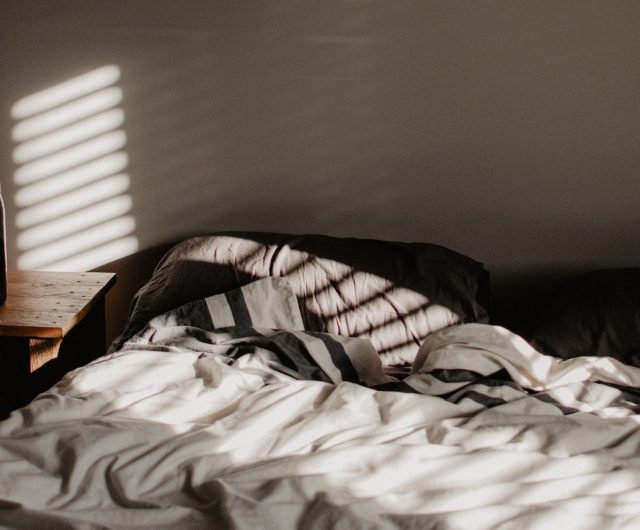
A summer night’s sleep is no easy task. Temperature is one of the most important factors affecting human sleep. According to the US National Sleep Foundation, the ideal temperature for sleep is 16-18 degrees Celsius. Therefore, the intense heat that has been going on for the last few days can make it difficult to fall asleep and worsen the quality of sleep. We asked a DocMed neurologist how you can improve your sleep in the heat, even without air conditioning at home.

Mark Kachanovsky, DocMed neurologist
- Drink enough fluids. It is better to have plain water or chilled fruits and vegetables rather than sugary sodas. Particular attention to this item should be paid to children and the elderly with poor thermoregulation.
- Take a cool shower before going to bed. This lowers your body temperature, wicks away sticky sweat, and makes you feel more relaxed and comfortable before bed.
- Buy a good mattress. Cotton sheets “breathe” better than synthetic sheets, which promotes air circulation and cooling. You can increase the cooling effect by putting the sheets in the refrigerator for a few hours before going to bed. By the way, large pillows also retain more heat and prevent cooling, so choose firmer and smaller sizes for summer.
- Rethink your approach to nutrition. Opt for a light dinner before bedtime rather than a heavy meat or carbohydrate meal. The same is true for alcohol. It not only disrupts natural thermoregulation, but also disrupts the normal structure of sleep. Alcohol is the main enemy of sound sleep on a summer night, as it “absorbs” fluid from the body.
- Your partner’s body temperature may prevent you from sleeping comfortably. Discuss the issue of personal space for sleeping. At least until cool autumn. If non-negotiable, use a temporary “cooling pad” in the form of a refrigerated pillow or towel that can be placed between you.
- Cool the area around you. Ventilate the room regularly, especially during the cooler times of the day. Hang a damp sheet in front of an open window over the fan or spray the inside with cold water with a spray bottle.

The link between sleep and thermoregulation is not unidirectional. If there is not enough rest, the regulation of the body’s own temperature is disrupted, thus creating a “vicious circle”. Therefore, follow some rules to improve heat tolerance, sleep and protect your neurological health:
1. Get ready for bed. Try to develop certain rituals that will help you create a certain “mood” for sleep.
2. Try to go to bed and wake up at the same time, regardless of workdays or weekends.
3. Try to remove the instruments two hours before going to bed – the glare of the screen reduces the secretion of the natural “sleep hormone” melatonin by 30%.
4. Minimize the use of stimulants (energy drinks, coffee, strong tea) in the afternoon.

5. If you can’t fall asleep within 30 minutes, get out of bed and try to relax (read a book or listen to music) until you get some sleep – then you can go back and try to sleep.
6. Do regular physical activity on cooler evenings and at least two hours before bedtime.
Heat is especially dangerous for the elderly and young children. The causes of “air sensitivity” and poor tolerance to high temperatures can be: the presence of diseases of the cardiovascular and endocrine systems (for example, thyroid dysfunction or diabetes), neurological diseases (multiple sclerosis) and kidney disease. Therefore, if sleep does not improve despite all the methods tried, consult a doctor (neurologist or somnologist) to find out the causes of problems with falling asleep.
Source: People Talk
Lloyd Grunewald is an author at “The Fashion Vibes”. He is a talented writer who focuses on bringing the latest entertainment-related news to his readers. With a deep understanding of the entertainment industry and a passion for writing, Lloyd delivers engaging articles that keep his readers informed and entertained.





